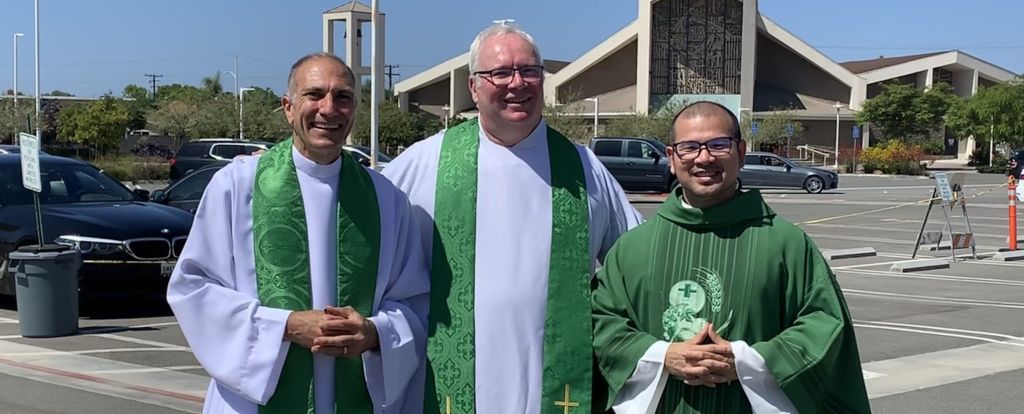
Pastoral Message – March 28, 2021
Today the Church celebrates the entry of Jesus into Jerusalem surrounded by people that acclaim him as one sent by God to save and lead the Jewish people in fulfillment of their scripture.
Each of the four Gospels contains an almost identical account of Jesus entering into Jerusalem surrounded by an adoring crowd because they each felt that it was essential to connect Jesus to the promises of salvation which were found in Hebrew Scripture. Often this entry is claimed to be “triumphal” but, in reality, Jesus is seated on a donkey and assumes an extremely humble posture. Even though he prefers not to be praised or acclaimed, the crowd repeatedly shouts: “Blessed is he who comes in the name of the Lord.” If these words sound familiar, it is because we proclaim them at each Mass in the “Sanctus” (“Holy, Holy, Holy”) immediately before the Eucharistic Prayer. This phrase is taken directly from Psalm 118. That Psalm was written in praise of a king who is entering through a city gate in triumph. We remember this moment in every Mass because the triumph of Jesus is an hour which does not pass away. As one of my Theology professors wrote, “we are standing within that same hour, and we are standing in that hour because he is coming to us now. Blessed is he who comes!”
Sadly, today’s Gospel also reminds us that the crowd’s adoration for Jesus is short-lived. His passion and death are near. The shouts of “Blessed is he who comes” become the shouts of “Crucify Him!” When I was about 10 years old, my aunt taught me to make crosses out of palm branches. It takes about 4 minutes to convert a simple palm branch into a pretty fancy cross. It took about 4 days to convert the praise and joy of His entrance into an arrest and crucifixion. How could the hearts and minds of the people be changed so quickly? Perhaps, their support for him was only skin deep: It was easy to be part of a crowd that welcomed Jesus but it was also easy to be part of a crowd that condemned him to death.
The story of this entry is one of contrasts: a king who came as a lowly servant on a donkey, not a conquering king on a noble steed. He is dressed in the clothes of the poor and humble not in royal robes. His kingdom is not of armies and splendor but of lowliness and servanthood. He comes not to conquer by force as earthly kings but by love, grace, mercy, and sacrifice for His people. He conquers not nations but hearts and minds. His message is one of peace with God.
Throughout the Gospels, Jesus is recognized by the humble and rejected by the arrogant. The key is that we are humble enough to accept our King. If we allow Jesus to make a triumphal entry into our hearts, He reigns there in peace and love. Only then can we reflect to the world the good news of the true King living and reigning in triumph in us. When we know “he who comes” we can begin to better understand how we relate to Jesus who entered Jerusalem to the shouts of the crowd. Jesus follows this path with all the anguish it entails, but he doesn’t flinch or waver. In this way he shows us how God is always faithful to his people.
Yet, from the time that they became the “chosen people,” His people were unfaithful time and time again. In fact, even during Christ’s last days on earth, His disciples could not remain faithful. Starting at the Last Supper the disciples gave in to fear and temptation. One left the room to betray Jesus. Others were concerned about prestige and who should be considered the most important among them. Other disciples fell asleep in the garden while the Lord was praying and suffering. One disciple tried to settle matters with a sword. Peter, the rock on whom Jesus chose to build His Church, loudly promised never to betray Jesus, but that same evening he denied Jesus three times. Finally, the other disciples fled the scene and disappeared. Can we be more faithful than the disciples?
As we begin Holy Week, let’s reflect on whether we run away when events become challenging, whether our faith is a matter of convenience more than conviction, whether we have truly allowed Christ in our hearts, whether our pride prevents us from recognizing our humble King, and whether we accept the steadfast love which drove Christ from honor to humiliation and from death to eternal life. Blessed is He who comes!
Fr. Mike

